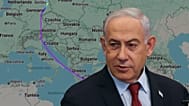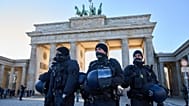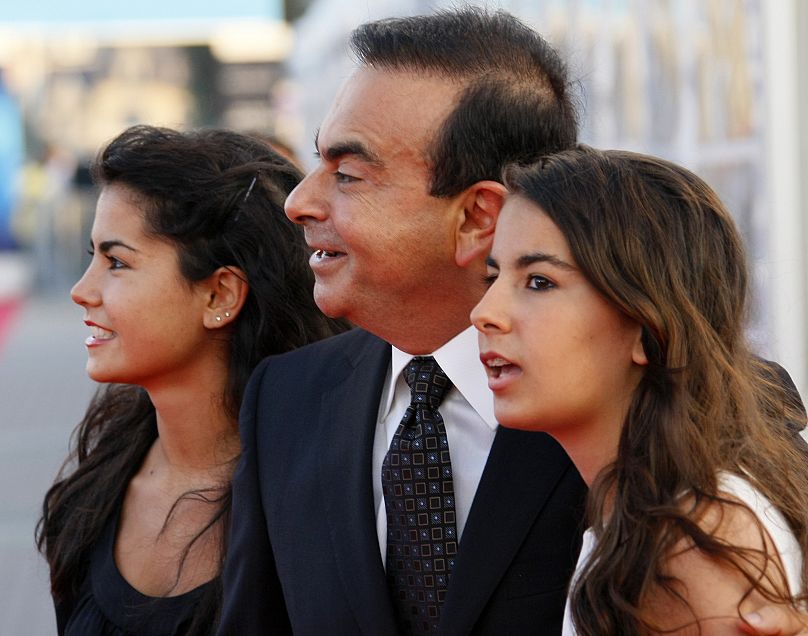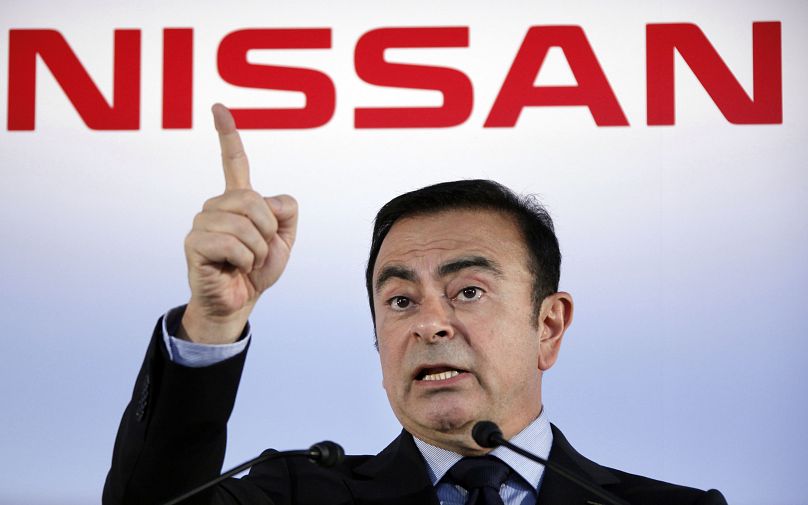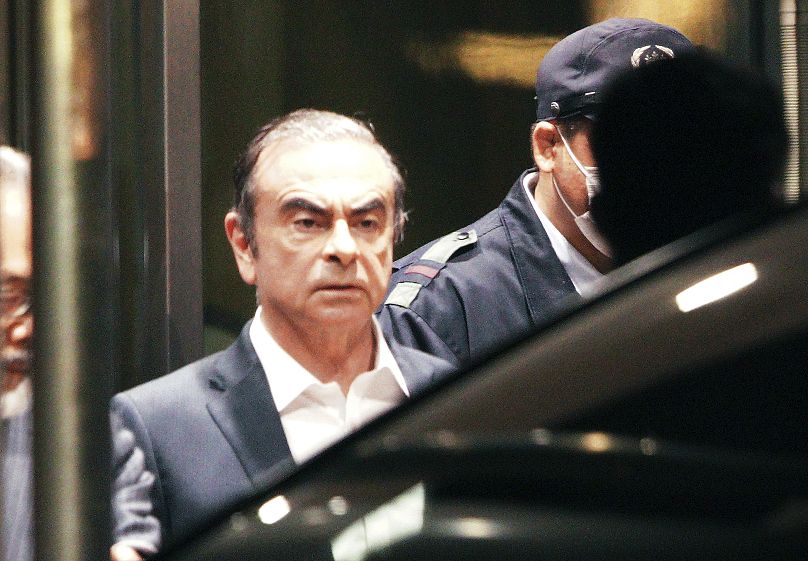From "Mr Fix-it" to international fugitive. Who is Carlos #Ghosn?
For the longest time, he was known as “the cost killer”, “Mr Fix-it” and one of the most successful business managers in the world: Carlos Ghosn, former CEO of Nissan. Now, he is a fugitive.
 ADVERTISEMENT
ADVERTISEMENT
 ADVERTISEMENT
ADVERTISEMENT
The news of criminal charges of underreporting of deferred compensation along with other financial wrongdoing allegations has replaced the headlines about the man who saved the Japanese automobile company, Nissan, from bankruptcy.
Codeswitching between cultures
Ghosn (rhymes with “phone”) was born in Brazil on March 9, 1954, as the son of Lebanese immigrants. When he was six-years-old, he moved back to Lebanon with his mother. He grew up in Lebanon and moved to study in France in the seventies. He has two engineering degrees, one of which he gained from the prestigious Ecole Polytechnique in 1974.
He speaks four languages: Arabic, Portuguese, French and English. He also started to learn Japanese at one point.
Today, he is the father of four children from his first marriage. He remarried in 2016 and has since then been with his wife Carole Nahas.
In 2005, he told a reporter of the Detroit News “Because you are different, you try to integrate and that pushes you to try to understand the environment in which you find yourself,” he told a reporter of Detroit News in 2005. “That tends to develop one’s ability to listen, to observe, to compare - qualities that are very useful in managing,” he added.
Ghosn’s early career
The man known as one of the most efficient managers of the automobile industry started off his career as a management trainee at the French tiremaker Michelin. He quickly rose through the ranks to become the company’s chief operating officer in Brazil at just over 30 years old.
In Brazil, he quickly succeeded to bring Michelin’s struggling South America operations back on its feet despite the country’s fragile financial state. His strategy was to create working groups, uniting people from across different sections of the company to work together, rather than in isolated silos. Two years after he got there, Michelin’s South America division turned a profit.
He repeated his success when he became CEO of Michelin’s North America operation in 1988, which was followed by his promotion to chairman in 1990.
Ghosn managed to push through a merger with a domestic tiremaker, doubling the size of his division.
His way up through the ranks hit a ceiling soon after since Michelin is a family-owned organisation. Michelin’s boss at the time was due to retire but had already ordained his son as his successor.
So, Ghosn moved on to a new challenge: Renault.
Ghosn rescues Renault and Nissan
In 1996, Ghosn joined French automobile maker Renault at a difficult time. The company was close to bankruptcy and so he started a huge restructuring campaign.
In an interview with Fortune in 2003, Ghosn talked about Renault’s company culture when he had joined, saying that a lot of time was wasted on “discussions about everything and nothing.” He also mentioned his belief that “you can’t always have high productivity and high morale at the same time.”
He closed a Renault factory in Belgium, costing 3,000 workers their jobs. That’s when he won his title as “cost killer.”
However, Renault flourished and ended up becoming one of the best-selling brands in Western Europe.
When Ghosn joined, the French government had an 80 per cent share in the company, by the mid-2000s that share had declined to 15 per cent.
1999 was the beginning of a new adventure for Ghosn. That is when Renault bought 36.8 per cent of the ailing Japanese carmaker Nissan for about $7 billion.
Remarkable Nissan turnaround
At the time, Nissan was about $36.5 billion in debt, results of the losses in the past five or years and poor sales numbers of not very innovative cars and trucks. The company had fallen behind rivals, such as Toyota and Honda in terms of technology.
Ghosn was sent to Tokyo to become Nissan’s CEO. “Mr Fix-it developed an ambitious restructuring plan that took slow sales into account. He closed five factories and cut about 21,000 jobs and sold a bunch of shares to slash Nissan’s debs.
In order to make new models stand out on the market, Ghosn hired a top designer from the rival company Isuzu and flew in Renault personnel from France to help move the company toward the front of the pack.
Being the first non-Japanese person to lead Nissan, the beginning phase was a little bumpy. But his popularity skyrocketed when he brought Nissan out of bankruptcy within a year, way ahead of schedule. All his other Nissan plans seemed to have worked out too and the company soon rose to be a market leader.
He became so popular, they even made him the star of a Japanese manga comic series and his home country Lebanon even talked about Ghosn possibly becoming a presidential candidate.
Renault-Nissan becomes Renault-Nissan-Mitsubishi Alliance
Originally, the plan was for Ghosn to take over the Renault CEO position after the retirement of Louis Schweitzer in 2005. But Ghosn was ready to take on even more.
Instead, he decided to stay on as co-chairman at Nissan, while taking on the positions of president and CEO at Renault and as that he had big plans.
In 2016, Nissan took a controlling 34 per cent stake in Mitsubishi Motors Corp, costing Nissan $2.29 billion. Mitsubishi had been getting into hot waters after it admitted earlier that year to overstating the mileage on some of its cars.
So, on top of his positions at Nissan and Renault, Ghosn took over as chairman at Mitsubishi.
The investment rendered the Renault-Nissan-Mitsubishi Alliance the world’s fourth-largest auto group, after Toyota, Volkswagen and General Motors.
Despite all of his successes in the automobile industry, Ghosn was not known as a technical innovator. Nissan marketing chief Steve Wilhite told Automotive News in an interview: “Once [Ghosn] has digested a problem, he is like the anaconda that swallowed a goat - everyone else is watching what he has just done, but he is moving on to the next meal. Ghosn has no problem making decisions quickly and decisively."
READ MORE: Ghosn hands over the reins at Nissan
Arrest in Tokyo
On November 19, 2018, Ghosn was arrested on his private jet in Tokyo after he had just landed from a trip to Lebanon. He was held for questioning over allegations of false accounting.
Charges were filed against Ghosn for under-reporting his future pay package and breach of trust. However, Ghosn maintains his innocence up until today.
He stayed in detention for 108 days and was released on a $9 million bail in March 2019. He was then re-arrested and released again on a $4.5 million under the condition of strict house arrest.
Earlier in 2019, Ghosn’s wife petitioned Human Rights Watch to protest Japan’s “cruel and inhumane” system of justice, complaining about her husband’s treatment since his earlier arrest.
Ghosn had been held in a cell with little contact to the outside world, was not allowed to see his family and had limited access to his lawyers.
READ MORE: _Nissan's former chair Ghosn says he was victim of 'backstabbing' in video address _
Ghosn stripped of executive rights
On the day of Ghosn’s first arrest, Nissan Chief executive Hiroto Saikawa announced he had been dismissed for the board and would be stripped of his executive rights soon after. In April 2019, Nissan shareholders voted to oust Ghosn from the board.
Saikawa alleged that Ghosn had underreported his compensation and used company assets for personal use.
Mitsubishi also sacked Ghosn as chairman right after his arrest. Meanwhile, Renault had kept him on, awaiting trial. Now, the French carmaker is moving to replace Ghosn.
In an interview with Nikkei in January 2019, Ghosn said he had “no doubt” that the charges against him were the result of “plot and treason” by Nissan executives opposed to his plan for deeper integration between Nissan, Renault and Mitsubishi.
The great escape
On December 31, 2019, news broke that Ghosn had secretly fled from Japan, skipping his bail and now officially becoming an international fugitive.
Junichiro Hironaka, Ghosn’s main lawyer told reporters Tuesday afternoon that he was stunned that Ghosn had jumped bail and denied any involvement in or knowledge of the escape. He said the lawyers had all of Ghosn's three passports and was puzzled by how he could have left the country.
According to Lebanese media, Ghosn arrived in Beirut from Turkey. Japan does not have an extradition treaty with Lebanon.
“I am now in Lebanon and will no longer be held hostage by a rigged Japanese justice system where guilt is presumed, discrimination is rampant, and basic human rights are denied, in flagrant disregard of Japan's legal obligations under international law and treaties it is bound to uphold,'' the statement said.
He insisted he has "not fled justice" but has "escaped ... injustice and political persecution."
READ MORE: Ex-Nissan chief Carlos Ghosn flees Japan for Lebanon to avoid 'injustice'
The conviction rate in Japan exceeds 99% and winning an acquittal through a lengthy appeals process could take years. Rights activists in Japan and abroad say its judicial system does not presume innocence enough and relies heavily on long detentions that lead to false confessions.
The charges Ghosn faces carry a maximum penalty of 15 years in prison.


